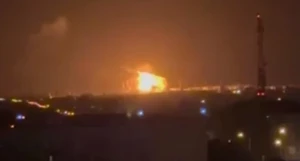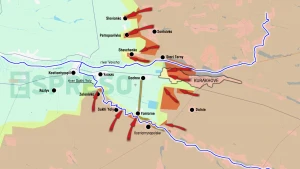
The attempt to "Africanize" the Russian-Ukrainian war has failed
The current war has cristal-clearly exposed Russia's natural imperialism. Previously, its manifestations were attributed to communism, totalitarianism and the "world revolution," and even earlier to archaic autocracy
The visit of African leaders to Ukraine provoked a very mixed reaction, which gradually turned more negative as some representatives of the delegations chose to "ignore" the missile attacks that took place on the very day of the visit.
The "peace plan" proposals themselves failed to satisfy anyone. Officially, only vague provisions along the lines of "supporting good and opposing bad" were disclosed. Unofficially, there were leaks from questionable Russian sources, but these contained nothing that had even a remote possibility of being implemented.
Obviously, the very concept of an "African mission" was not very viable: "We have problems with food and fertilizer here, so give each other a break somehow." Apparently, this approach appeared reasonable and comprehensible within the policy frameworks of the states whose representatives visited Ukraine (and later Russia), but not to Ukrainians.
“The general influx of intermediaries from geographically distant countries who want to offer their "services" demonstrates a lack of understanding of the very nature of the current war.”
The problem with the ongoing war is not that there is no worthy mediator yet. The problem is that the war is of an existential nature. The empire does not want to let go of the state it considers "its own" and is ready to make every effort to try to capture the "former province."
Those who persist in advocating for the implementation of an unworkable "ceasefire" are seemingly unwilling to acknowledge that, for Russia, such a ceasefire is merely a technology — a means to sustain the ongoing war.
In February, the old man in the bunker, driven by hopes of a swift victory, carelessly exposed his true intentions. Now, he can no longer shield himself behind "restrictions," agreements, and "OSCE missions." Clearly, he is displeased with this situation. It is far more "interesting" for him to engage in unrestricted combat while his opponent's hands are tied. This is why "agreements" are sought—to regain strength and dictate when to strike.
“To end the war, Russia needs to abandon imperialism, which means abandoning the foundations of modern Russian society. And also the foundations of the regime that dominates there, which the regime, for obvious reasons, cannot do.”
It is clear that the "African mission" was an attempt to "Africanize" the Russian-Ukrainian war. That is, to reduce it to a small local conflict over disputed territories, which can be relatively easily resolved by simply giving up these territories or dividing them. But in reality, this is not the case, and it is not about any territories. We are talking about the death of an empire that stubbornly refuses to leave the imperial past and is ready to go quite far to defend the values of the forgone century.
It is worth noting that the current war has cristal-clearly exposed Russia's natural imperialism. Previously, its manifestations were attributed to communism, totalitarianism, and the "world revolution," and even earlier to archaic autocracy. But now Russia is a "market" state, which in many ways does not differ from others. And its imperialism is the same as in the days of the distant past. And there is no way to negotiate with this imperialism, it is simply a fact. Someone recognizes it, someone does not, and sends "missions," but the fact will not cease to be a fact.
About the author. Petro Oleshchuk, political scientist.
The editorial staff do not always share the opinions expressed by the blog authors.
- News














































